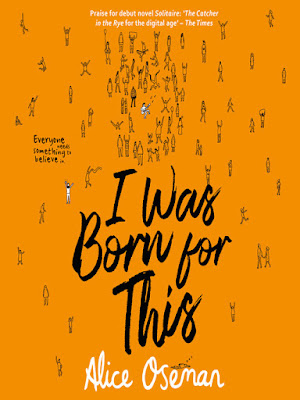Rapid Review: Chimamanda Ngozi Adichie
Chimamanda Ngozi Adichie
We Should All Be Feminists
Dear Ijeawele
(Finished reading: 8/9/18)
5/5 stars
Essential, thoughtful, insightful.
“social norms are created by human beings, and there is no
social norm that cannot be changed.”
I recently finished a couple essays by Adichie and felt it
necessary to talk about them because of how important and revealing they are
about our world as we know it, in particular, how our world treats women. As a
feminist myself, I thoroughly loved and supported Adichie’s writing. But as
enjoyable as it is to read from a feminist perspective, I am more inclined to
believe these essays are for those who do not necessarily consider themselves a
feminist. Adichie beautifully illustrates her views and arguments with personal
anecdote and everyday oppressive behaviour which I think will be relatable to
many women but also necessary for men and women who do not relate to be able to
attempt to understand. Both essays primarily focus on feminism from Adichie’s
perspective as a Nigerian woman and the influences of Nigerian culture on
gender. However, I have to say, the majority of the issues she presents in
these essays are just as relevant to other cultures and therefore it is vital
they are talked about all over the world.
‘We Should All Be Feminists’ is a personal essay adapted
from Adichie’s popular TED talk of the same name. In this essay Adichie
presents us with her own personal experiences with feminism as a Nigerian woman
living in the 21st century. Throughout the essay she attempts to
build a contemporary definition of feminism by drawing examples of sexual
politics in everyday life. She also discusses the negative stigma surrounding
the word ‘Feminist’ and what it has become to mean to a lot of people. At the
end of the essay she finally presents us with her definition of a feminist as a
man or woman who says: “Yes, there’s a problem with gender as it is today and
we must fix it, we must do better.” To which I whole-heartedly agree. There
certainly is a problem with gender today and this is a problem easily
observable should one be willing to see it. These problems have and still are
very much masked and rarely discussed as an issue that needs to be dealt with.
However, these issues are so deeply ingrained in us as children that it’s hard
to reject our views of gender roles that we’ve always accepted. These problems
are prevalent in schools, the workplace but also in our social relationships
with one another. I really liked how Adichie discusses these issues and ties
them all together. Her writing is very clear and easy to read and is definitely
accessible to everyone and because of this I’d like to think more people picked
up this essay as it really does have the power to change how we view gender in
the 21st century.
‘Dear Ijeawele’ is a feminist manifesto in fifteen
suggestions. In this essay Adichie writes a letter to her friend in response to
her question ‘how do I raise my daughter a feminist?’, or rather, advice on how
to raise your daughter be a strong, independent and empowered woman. Besides
being an essay about feminism, I think this is also great parenting advice for
any parents expecting either a daughter or a son. Adichie’s suggestions
progress roughly based on the age of the child, for example, the earlier
suggestions deal with issues in gender we face as young children or younger
parents and then gradually build up to problems that may be faced as the child
grows up. This forces us to reflect on how early we begin to enforce gender
values on children by telling them what toys they should be playing with or the
way they ought to behave. And then towards the end of the essay Adichie
discusses more adult issues relevant to teenagers such as sexual values, beauty
ideals and marriage. But of course, the earlier discussion on motherhood is
just as relevant to the daughter as she approaches motherhood and the gender
issues surrounding parenting. Although I’m not personally a parent nor approaching
parenthood, I’m really grateful to have read this essay. And despite not being
a fresh-out-the-womb, impressionable baby, I feel like this manifesto is still
relevant to me as a woman in the early stages of adulthood as I have certainly taken
something from this. I particularly enjoyed the discussion surrounding marital
traditions as I really liked the idea that instead of women being expected to change
their names to their husband’s surname, couples pick a completely new surname
and both adopt this name and pass it down to their children. To me, this is
something I’d like to see become a more contemporary tradition that catches on
and promotes equality. But overall, I really enjoyed this book because it
encourages parents to promote feminist values and equality in children from
birth right through to adulthood. This, I personally believe, is the best way
to achieve a more equal society.
I thought both essays were very thought-provoking and forced
me to consider ideas I hadn’t necessarily considered before. I hope others will
read this essays and reflect on our current perception of gender in everyday
life and hopefully by raising our children to recognise this from an early age
we can bring about the change we all desire.






Comments
Post a Comment